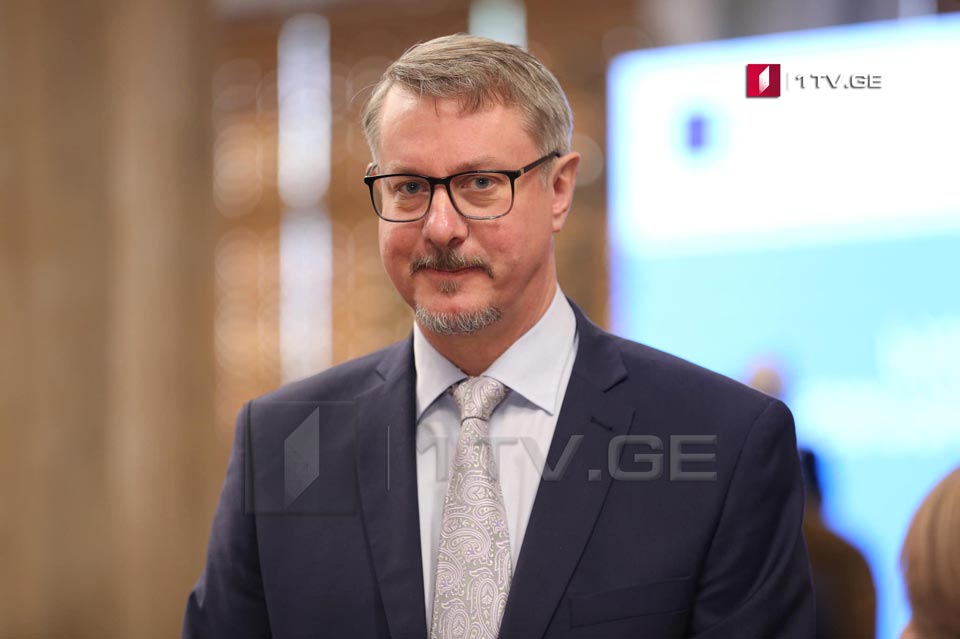EU Ambassador: Opposition to enter parliament to take part in investigative commission
“The investigative commission is a powerful vehicle to advance the findings of the last elections and come to a broader understanding,” EU Ambassador Carl Hartzell told journalists regarding setting up the interim commission of inquiry into parliamentary elections.
“The investigative commission is an issue we have been discussing during the political dialogue. This is clearly a powerful vehicle to advance the findings of the last elections and try to use that to come to a broader understanding of what has been done in the last elections. One of the issues that need to be thought about is how you construct that, the participation in the commission is obviously one of the factors. A commission like this, with its powers, has an opportunity to advance on the common facts that would be accepted by everyone. Hence, the issue of participation, the mandate of this commission, how it will carry out its work, the level of public scrutiny of its findings, its hearings, and other issues that one should be looking into,” Carl Hartzell declared.
Following the question regarding the opposition refusing to join the commission, the EU Ambassador said membership of the opposition in the inquiry commission is crucial.
“I have to be definitive on it because I think there are many factors that need to be looked into before passing a verdict. One of the points and reasons why I had stressed the importance of having the opposition working in the parliament is exactly this, in order to take part in a commission such as the investigative commission and taking part in seeing through election reform and working on reforms and participation, the broad participation in parliament is an undeniable asset,” Hartzell declared.
EU Ambassador said that the OSCE/ODIHR and other observers’ conclusions are vital.
“To me, it is an absolutely essential part to follow up. It is going to be very important to take into account whatever conclusions have been drawn collectively, including OSCE/ODIHR and other observers, in the view to lessen the risk of this reappearing in the future elections, is an absolutely crucial piece of reform,” Hartzell concluded.

